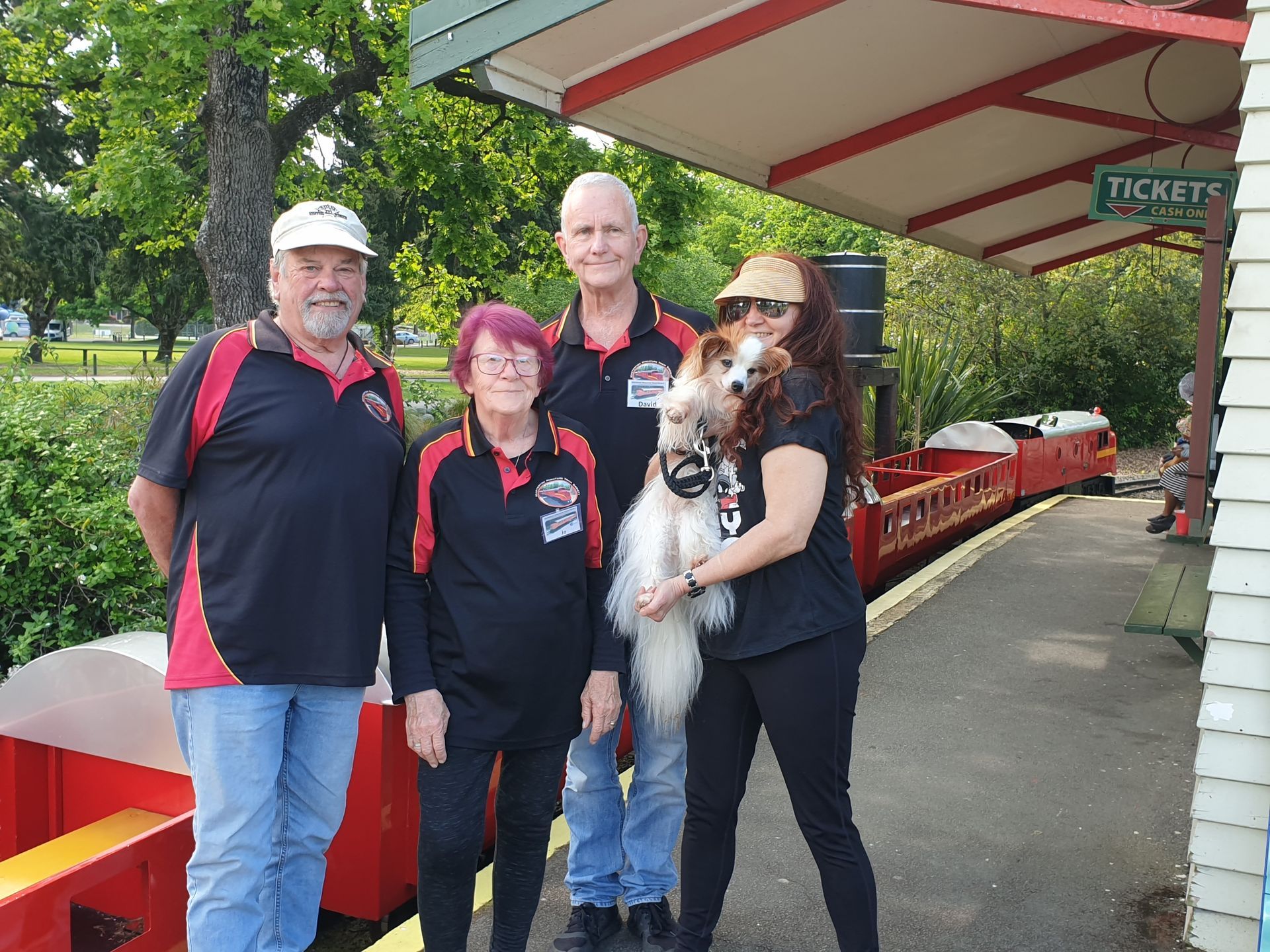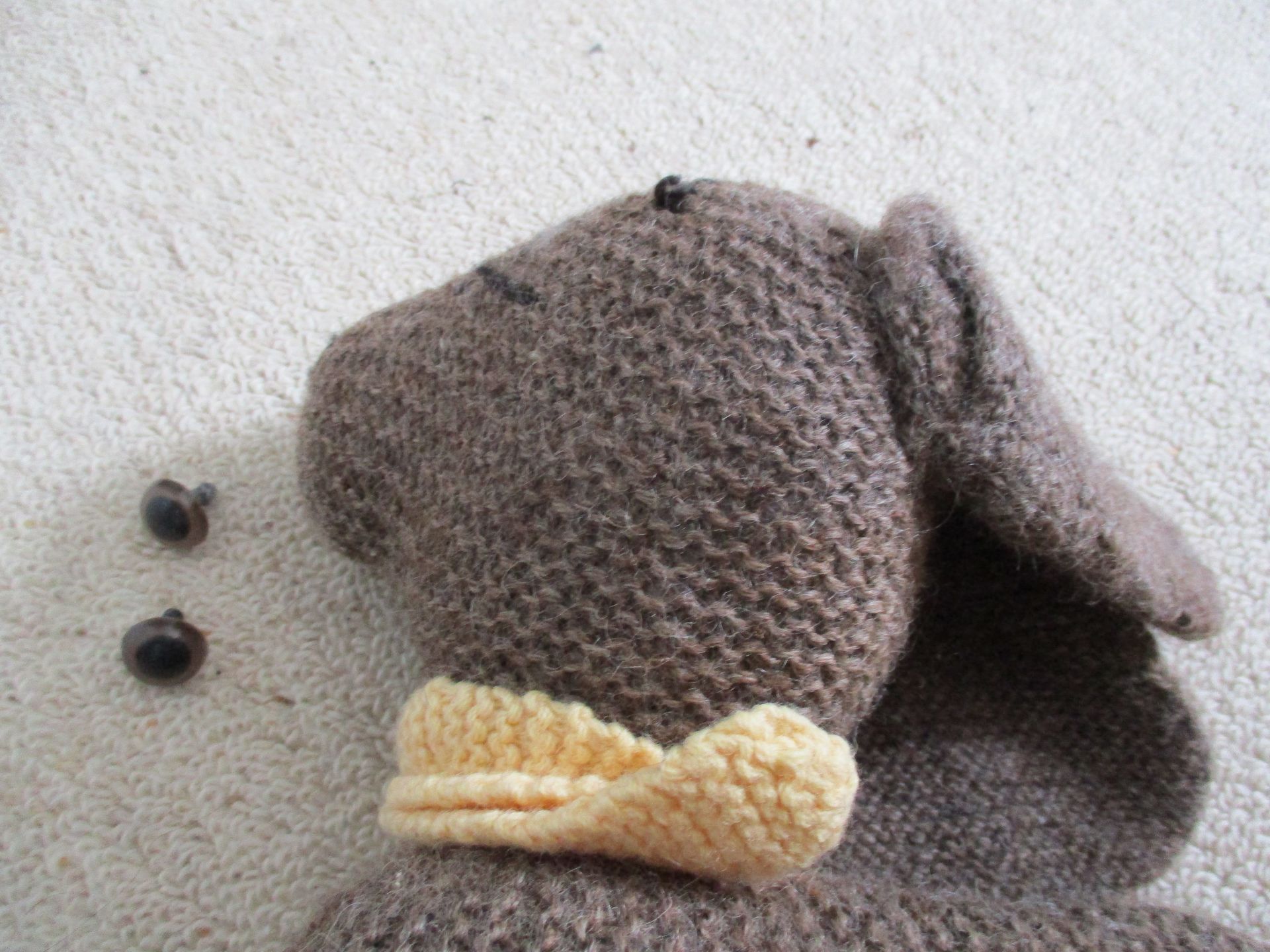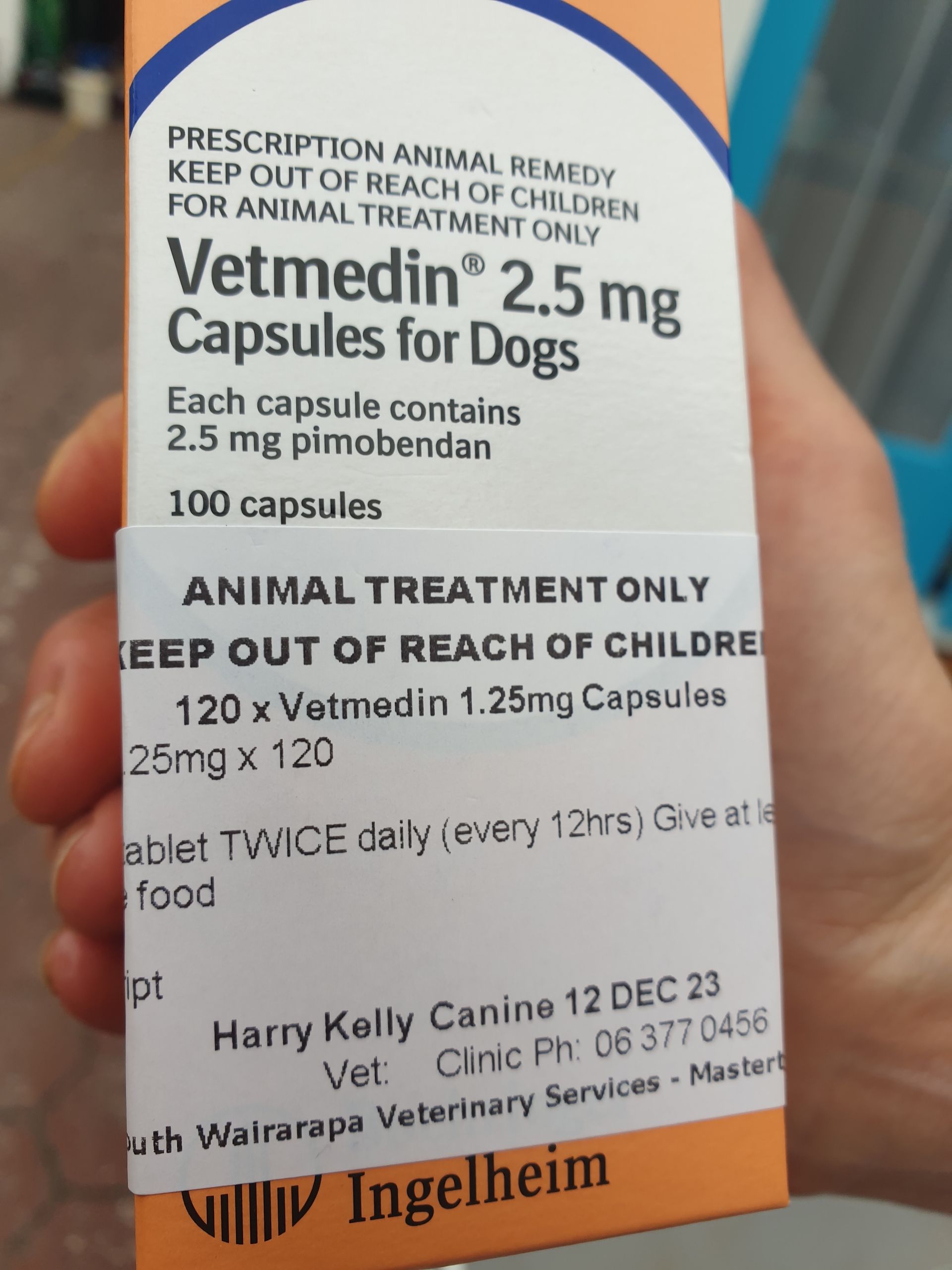Your 'Baby’s' Missing. You're Staring Down the Barrel of Your Worst Nightmare. What Do You Do?

(This is an advisory article on what to do, in what order to do it, and what not to do, in the event your worst nightmare becomes a reality, and your beloved dog goes missing. But first, bear with me, while I relate my own horrifying experience . . . which includes all the things that should have been done, but weren’t.
Further into the article, you’ll receive frontline advice from a seasoned animal control officer that will maximise your chances of getting your “baby” back – and as quickly and safely as possible.)
Suddenly realising your precious fur baby is missing, is one of the most terrifying moments in a dedicated, and otherwise highly responsible, pet parent’s life.
I never thought it would happen to me. Until the day it did.
I had left my precious little Harry in the “care” of a seemingly “lovely” retired English couple here in Masterton, New Zealand, for an afternoon while I had a dental appointment in Wellington (our capital city, a four-hour round trip).
I had found this couple after advertising for occasional care for instances just like said dentist appointment, where it wasn’t appropriate to take him and where he couldn’t be left in a vehicle – not for that amount of time, and, of course, not ever, in the warmer months.
I had visited the home and yard environments of a shortlist of potential carers, and this couple seemed to be the ideal candidates. Their own little dog had died just prior, and they said they wanted part-time canine company but without the full-time commitment.
Returning back late that afternoon – armed with British brand-name biscuits and cakes from a UK specialty products store, as a gift of gratitude for "looking after" my precious Harry – I found not only that no “looking after” had been done . . . but far, far worse than that, here’s what I actually found:
As I approached the couple's open patio door, I saw both of them sitting watching television. They barely looked up. As my eyes scoured around their lounge for Harry, they finally looked up at me, each with a scowl on their face.
I thought they were playing some silly trick, and so I said, “OK, where is he?”
Harry Was GONE
It was at the moment of their unconcerned response that I realised the awful truth: Harry was GONE.
They had no idea where. They had no idea when. And they had done NOTHING about it! (Except to claim that “we’ve been driving around looking for him” . . . which they certainly weren’t doing when my arrival had interrupted their TV-watching.)
Fear, terror and complete confusion took over in equal proportions – and at a scale I had never experienced before in my life. To the point where, in retrospect, I don’t even know what happened to the armful of British goodies I came laden with to their door. I assume I must have just dropped them on the patio.
What I DO remember is – at the moment of realisation that this wasn’t just some silly, or cruel, joke, and that I was in a completely unfamiliar geographic territory (having moved to Masterton only weeks earlier) - letting out a blood-curdling scream, which met with chastisement from the couple, but still nil concern for Harry's whereabouts.
When Neighbours Care, It Makes A World of Difference
A young couple in the neighboring house rushed out to investigate with great concern, and immediately set about searching their own property (something the “lovely English couple” had who knows how many hours to ask to do).
While they were searching their yard, I then did the only thing my completely unprepared and not clearly thinking brain could do: Run up and down the street screaming “Harry, Harry” at the top of my lungs.
A trio of several wonderful, and much clearer-thinking, retired ladies came running out of a house and coaxed me inside, whereby one of them got on her mobile phone to the local Council, one of them got on the local town Facebook page, and the other was trying to get hold of an IT guy who had taken my own mobile phone to attend to an issue with it, had not yet returned it, and who appeared in no particular hurry to answer it.
One of the women decided to brave going across to the unconcerned English couple’s house to ask for some indication of what time (during the full afternoon and thus far evening) they at least thought might have been his time of disappearance. They had no idea, of course . . . despite the fact that their stated intention for him was to have had him in their lounge with them all day.
Just as I was on the verge of completely losing my mind and getting back into my vehicle to drive around the streets in search of him, a woman who was now talking with the young neighbours of the “lovely English couple”, called out to me, “Have you lost a little white dog called Harry?” (Thankfully, the “lovely English couple” hadn’t taken off Harry’s harness, to which was attached his name tag, my address, and his Council ID tag.)
Thank God (Literally) for A Happy Ending
To bring the story to a gratefully happy and successful ending:
The woman’s daughter had seen Harry sitting in the middle of the road outside her (the daughter’s) son’s daycare centre earlier in the afternoon.
As she approached him, Harry had scarpered. But the quick-witted and quick-moving young woman managed to get herself and her young child into her car while not losing sight of him. She drove after him, before alighting and running after him into someone’s property. Said property owner had cornered him, handed him to her, whereafter she’d embarked on a search for me . . . all while I was searching for Harry.
How did her mother know to go knocking on the young couple’s door? Because the young woman had taken a photo of Harry, uploaded it to the local Facebook community page, and some sharp-eyed resident had linked their own sighting of Harry earlier in the day to the “lovely English couple” . . . whereupon the young woman had sent her Mum door-knocking in the surrounding area.
I have no words to express the depth of gratitude I feel to that young woman, and to her mother. The emotional rollercoaster of that hour or so, and the trauma of the memory of the initial terrifying moment, are something only another similarly devoted pet parent could comprehend.
I wanted to tell this story – and to tell it in detail – in order to impress upon readers just how important it is to be diligent to either avoid such a circumstance, or to be appraised of what steps to take, and in what order, to minimise the odds of the worst outcome and maximise the chances of the best.
Intuitive Reactions vs Counterintuitive (but More Strategic) Practicalities
Who better to tell a doggie mamma or a doggie pappa exactly what steps to take and in what order, than an animal control inspector of 27 years’ experience “on the beat”?
Gordon Crawley is the “Team Leader of Animal & Bylaw Services” for Masterton District Council. He presides over a small team of three in the animal control section of his overall department. He, however, is the main “feet on the street” . . . or, rather, the guy driving around on patrol and taking care of most of the “hands on” duties.
Says Crawley:
“When a dog owner first realises their pet is missing, it’s an incredibly stressful moment, and people go into high levels of distress,” he says.
“Their mind is spinning: Is it lost, is it stolen, whose fault is it . . . ?
“As hard as it is, the key is DON’T PANIC. This is a moment when you need to both think and communicate clearly, if you are to enhance your chances of getting your dog back.
“Your natural reaction will almost always be to go out and start looking for your dog. But, in fact, (speaking from the perspective of the New Zealand situation, at least), the very first thing you should do is let your local Council know.
“Because what might have (and often, has) happened, is that your dog got out four hours before you realised his or her disappearance, and we might well have it safely in the Council animal shelter. And all the while you are in high stress mode running around the streets looking for him or her.
“There’s an after-hours or emergency option on the outgoing voicemail options of most local councils’ main phone number. Don’t delay in using it. It doesn’t matter what time of the night it is. After hours call centre staff will take down the details of your situation, and the animal control team will be notified as soon as they come online first thing in the morning.
“We’ll either have the dog (assuming you give us a sufficiently detailed and workable description), or we’ll convey the details to the appropriate team member/s at that time.”
Crawley says that while the Council’s animal control personnel don’t go driving around looking for a lost dog, if they are aware of a missing dog, the details they’ve been given will help them keep a firm eye on the area while on general patrol – which they often are, for example, in certain areas known to be problem territory.
Council is the First, but Only the
First, Port of Call
After calling your local Council, the inspector says, your next move should be to get photos of your dog and a detailed description of him or her, on your local community’s social media pages (or that of the local area in which he or she was lost). Every local community has a Facebook page or something of that ilk, he says. (Indeed, that was the catalyst that led to Harry’s return.)
“Many, if not most, dogs get returned through this route, before we even get involved,” says Crawley. “Community social media pages are incredibly powerful. Don’t under-estimate them. People are always on those pages doing something.”
If your dog goes missing locally, go and knock on neighbours’ doors, he advises.
“I’d be inclined to visit neighboring properties up to seven or eight doors away in all directions, including off of side roads.”
Detail, Detail, Detail
The key here, he says, is to give a highly detailed description:
Not just breed, but other identifiers, primarily, colour and secondary markings e.g. brown ears, brown dots above the eyes, colour of collar, and, of course, the name the dog answers to.
Crawley says the degree of detail regarding the dog’s physical appearance is especially important in the case of mixed breeds and the new “hybrid” breeds.
“Labradoodles, by way of an example, and most of these new, emerging hybrid dog breeds don’t put any specific picture even in my mind, even as a seasoned dog control officer, so you have to consider how little the name of some new type of breed would mean to the average householder.
“I know all the basic breeds – fox terrier, alsatian, labrador, heading dogs, all the standards, of course, and most people do. But when it comes to mixtures of different breeds or these new hybrids – I have no idea what I’m looking out for, let alone the average resident trying to work out what mixed breeds or the increasing number of new mixed breeds look like.
“Having a very detailed description of what your dog looks like is critical. Including when you ring your Council pound – for the same reason.”
Put It In Print
My own suggestion in this regard, would be that – if your pet hasn’t been found after doing all the above and your first round of door-knocking, then - print out a clear photo of your pet, with the above level of detail in easy-to-read wording and print size.
Do a second door-knock exercise, delivering this notice in the form of (either A4 or A5) flyers around your neighbourhood, or the neighbourhood where he or she went missing (and also your own, if it’s a reasonable assumption that they could have tried to make their own way home).
Do that drop at least within the inspector's full recommended radius.
An actual piece of tangible paper with your dog’s description greatly increases the sets of eyes and ears you’ll potentially have on the case. When you do a verbal version of the door-knock, you’re talking to one person at the door, but later on, that householder's whole family comes home – and hopefully, sees your flyer.
A No-Brainer but It Doesn’t Go Without Saying
Back to the animal control inspector:
“I can’t stress enough how critically important it is to make sure your dog’s registration is up to date, and to ensure that it is microchipped. That massively increases your chances of getting your dog back.”
Also on the note of the obvious, but worthy of a big and regular reminder:
“An ounce of prevention is worth a pound of cure,” says Crawley. “Make sure your property is properly secure; fully dog-safe.
“Good fencing has no gaps. And always make sure people shut gates. It’s very advisable to have a clearly visible ‘PLEASE SHUT THE GATE’ sign.
“And put this in the delivery instructions when you order anything by courier.”
On the Note of Couriers
In closing, I’ll add to the inspector’s final point:
Unbelievability, my local New Zealand Post courier has left my large (but easily-closed) driveway gate swinging open, despite knowing full well that I have a little dog.
I promptly got onto the national call centre, who equally promptly didn’t give a stuff. It took for me to actually post a photo and an article and send it to the Government minister in charge of New Zealand Post, for them to actually bother to advise the courier against repeating his tardy actions.
However, just as unbelievably, I've seen him still leaving the gate open when he comes through it, until he goes back out of it . . . and it was only by sheer good fortune that I was outside and saw, and prevented, Harry from taking off through it. Had I not been outside and seen this, the outcome would NOT have been good for a little dog who has no road sense and is blind in one eye.
Think about it, New Zealand Post. And CARE a bit, eh? And instruct your local courier accordingly.
And while you’re at it, New Zealand Post, instruct ALL your couriers against such sloppy laziness that stands to very easily have heartbreaking and irreversible consequences.
Other News, Reviews & Commentary

Want to suggest a topic?
Send us your topic ideas, feedback, or any commentary on your own experience as a doggie parent.
Want to Contribute?
We will get back to you as soon as possible.
Please try again later.
YOUR PRIVACY
Our use of your submitted information is limited to the sole purpose of responding to you and/or to contacting you to follow up on any suggestion you have submitted to us. Under no circumstances do we share your email address with any other party for any reason.





